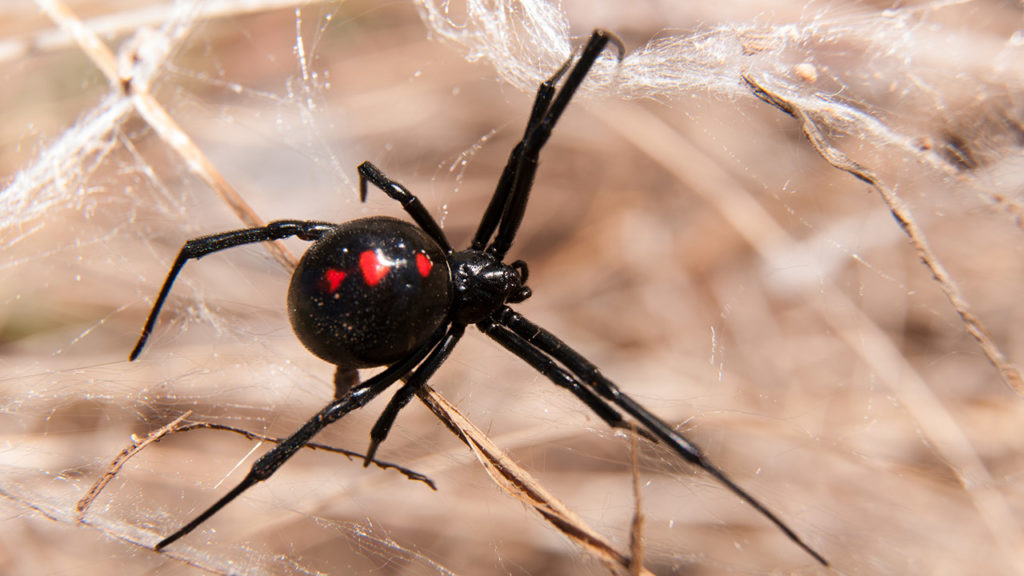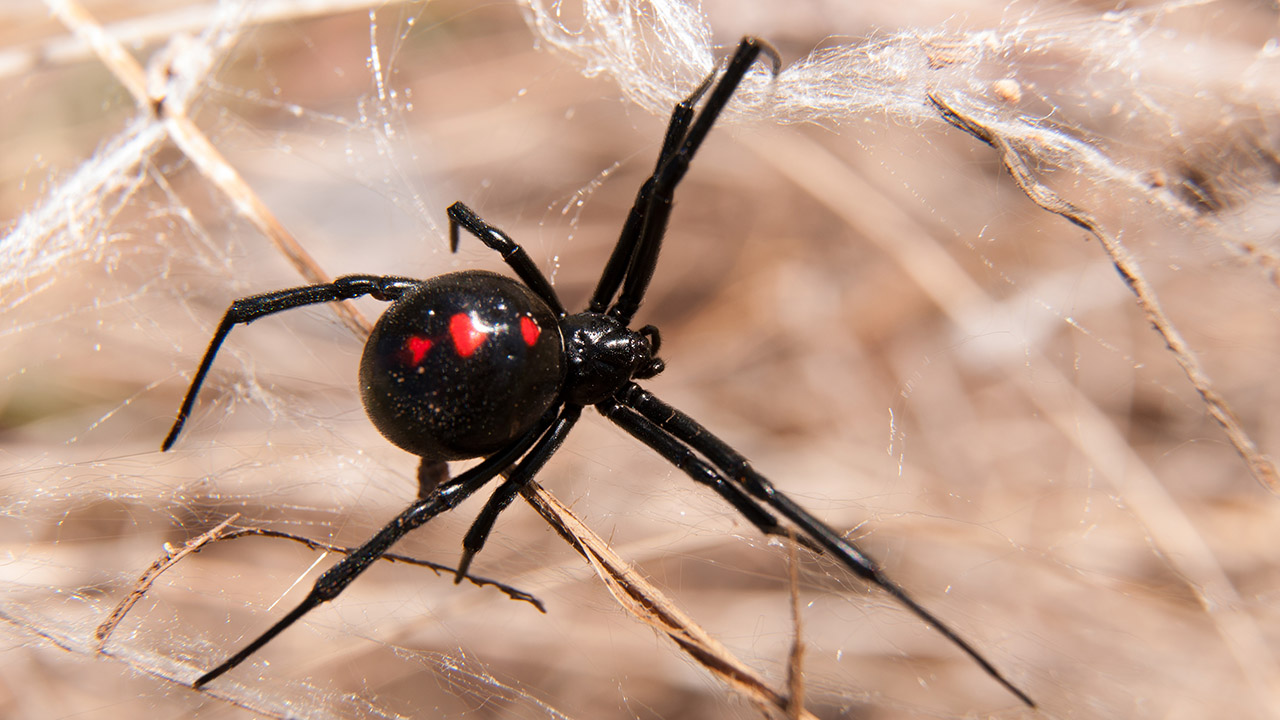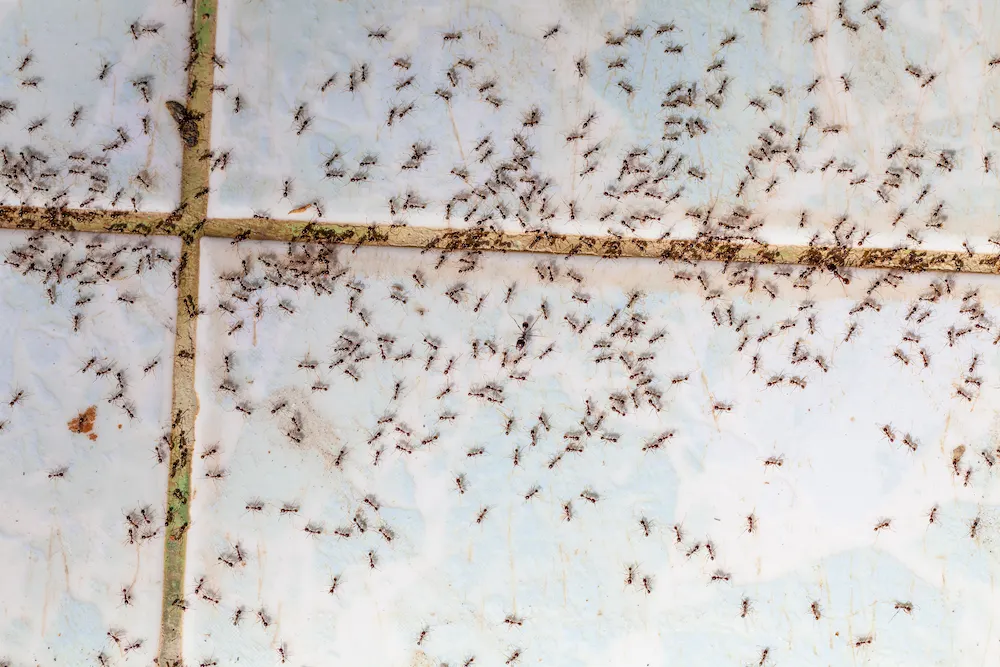Spiders are some of the most common pests that enter homes and unless their populations become quite large, they are usually harmless. Even in the United States though, there are some species of spiders that do have the potential to be quite harmful to humans. Among those, the black widow spider is the most dangerous.

A black widow spider bite, while rarely fatal, will still cause tremors, difficulty breathing, and swollen eyelids. To prevent being bitten, it is important to know the signs of a black widow infestation. When looking for black widows, there are two main signs to watch for.
Messy, Unstructured Cobwebs
If you look at most spider webs, they are intricate, detailed, and appear almost perfect in design. Black widow spiders do not appear this way. Instead, these webs look very irregular and as though they were constructed haphazardly. A black widow spider web can measure up to 14 inches in length and its breadth is usually the same size, although it will depend on the amount of space available.
Black widow spiders also do not spin their webs in the same areas as other spiders. While most spiders will create their web up high, in the corners of ceilings, black widow spiders spin their webs much lower. The web of a black widow spider will likely be no more than a few inches above the ground, and they will likely appear in basements, attics, storage rooms, and other areas that are not usually disturbed.
Black widow spiders prey on arthropods such as ants and roaches, that crawl rather than fly. Webs that are close to the ground allow them to do that. Additionally, these spiders also use their nests as protection from predators. If their web is in a corner, cavity, or other place that is difficult to reach, they can quickly scurry back into their web for protection. While in their web, black widow spiders will also hang upside down, displaying the red marks on their abdomen. This is a defense mechanism, as it warns off predators.
Although the web of a black widow spider may seem haphazard and as though no thought was given to its construction, this is not true. The webs of these spiders are divided into three layers. The first is the strongest and is intended to keep debris and waste out of the web. This first layer of the web is so strong, you can actually hear a ripping sound when it is broken.
The second layer of the web contains the most threads and the spider uses it to hang upside down. The third layer catches the spider’s prey. Black widow spiders will also slowly descend on their prey when it is on the ground but outside of the web.
The Black Widow Spider Egg Sac
The telltale black widow spider web is one of the best ways to determine if you have a black widow infestation, but there is another way as well, and that is the egg sac. The egg sac of black widow spiders appear white or grey, are spherical in shape, and have a small notch at the tip. These egg sacs are created using the same threads the spider uses to spin the web, so they are quite strong.
A black widow spider egg sac is a very serious sign that you need the help of a professional spider control company. The egg sac of a black widow spider is very small, measuring only 0.4 – 0.5 inches in diameter. Even this small sac though, will contain 250 to 300 eggs. Female black widow spiders can also have between eight and ten egg sacs, with hundreds of eggs in each of them.
It is also important to act quickly if you spot a black widow spider egg sac. These egg sacs take only two weeks to hatch. Once they do hatch, the offspring will remain in the sac until they shed their skin, or molt, for the first time. After that time, they will break through the sac.
Black widow spiders are not generally aggressive. However, if there is an egg sac nearby, these spiders will become extremely aggressive when defending them, so it is important not to handle them on your own.
Call Our Pest Control Experts Today
If you have spotted even one black widow spider in or around your home, it is critical that you speak to one of our pest control specialists at Pointe Pest Control today. We know how to remove these spiders quickly and effectively, so you can feel safe in your home once again. Call us today at (866) 633-1573 or contact us online to schedule a consultation and to learn more about how we can help.




